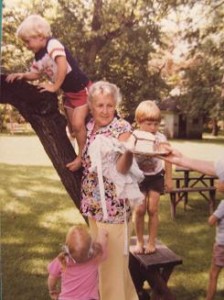We’ve passed the two-month mark now. Life is speeding along around us, and we’re doing our best to keep up, but every once in a while, we bump into a road block of anguish.
This morning I looked at the mountain of reading that has accumulated in the weeks leading up to Christmas, still untouched but calling loudly, and decided I’d better shuffle through at least some of it. Sorting it into piles was helpful: 1) for much later, 2) as soon as I can, 3) now!
That sounds efficient and well organized, but I am neither. Turning to leave with my pile of “nows” in one hand, the December Focus on the Family newsletter caught my eye. It was atop the “for much later” pile, but in a flash I was reading it.
Each December that newsletter breaks with the format of the other eleven months and shares a warm Christmas story, the kind families could confidently read around the holiday dinner table. I look forward to each December’s story and this morning found myself into it even before I had my pajamas off.
Sitting down with coffee, my “nows” and the newsletter, I read a husband’s story about his wife’s surprise pregnancy after cancer and intense radiation. Although they’d been told she would never have children, there was a positive pregnancy test, which unleashed nine months of anxiety over the condition of the child.
Their miracle baby due at Christmas, arrived at Thanksgiving, tiny but healthy. The young couple, without money for Christmas gifts, put their tiny month-old newborn under the tree with a miniature red Santa hat on his little head. His daddy wrote, “He was our gift to each other that year. Nothing else could have come close.”
They saved that Santa hat, and every Christmas since 1976, have topped their Christmas tree with it. The husband wrote, “It serves as a reminder of how out of the depths of despair and the shadow of death can spring hope and expectancy, and ultimately affirmation [of new life].”
This morning as I read that story and landed on that last sentence, I broke into sobs like I haven’t since my encounter with the homeless man weeks ago. I couldn’t stop. And once again, I didn’t know why I was crying. My head was hanging down, and tears began pooling in the lenses of my reading glasses. What was this all about?
Maybe it was the husband’s positive statement that hope and expectancy can spring from death and despair. If that was it, my tears were those of happiness. I might also have been unconsciously thinking of the three newborns God is sending to our family, one due in three weeks, the twins in about three months.
But also underneath that emotional eruption was Nate’s death and disappearance, along with my yearning never to let the memories fade. Maybe I was unconsciously asking, “What represents our Santa hat for Nate?” Over the next few days, I’m going to think about it.
In Old Testament times, the Israelites had their Santa hat. It was called a “rock of remembrance.” God instructed them to set up stone markers as reminders to them and future generations that he was the master of rescuing, of performing wonders and of bringing new life from the death of old ideas, habits and hopes. This morning while reading the baby story I realized afresh that God is the same today as he was in 1976, and the same in Bible times, and the same even before time began at all. One of the best things about him is how he still brings life from death. Always did and always will.
God saved the life of the young wife suffering from killer-cancer but even greater than that, he brought new life directly from her. This is the kind of spectacular work God does. He doesn’t always cure cancer or send new babies, but he always, without fail, brings new life. The categories in which he works are myriad. If we don’t believe it, it’s because we haven’t seen it. And if we haven’t seen it, it’s because we haven’t asked for it. When I ask, he shows me, and when I see, I’m overwhelmed with pleasure and hope, just as the young couple in the story was.
I know God will bring new life from my husband’s death. In a way, he already has by using Nate’s life as the focal point of this blog. With every positive feedback, a little something new is born. For that, and for all the new life I have yet to see as a result of Nate’s death, I am truly thankful.
“I tell you the truth, unless a kernel of wheat falls to the ground and dies, it remains only a single seed. But if it dies, it produces many seeds.” (John 12:24)
“Jesus Christ the same yesterday, and to day, and for ever.” (Hebrews 13:8)




